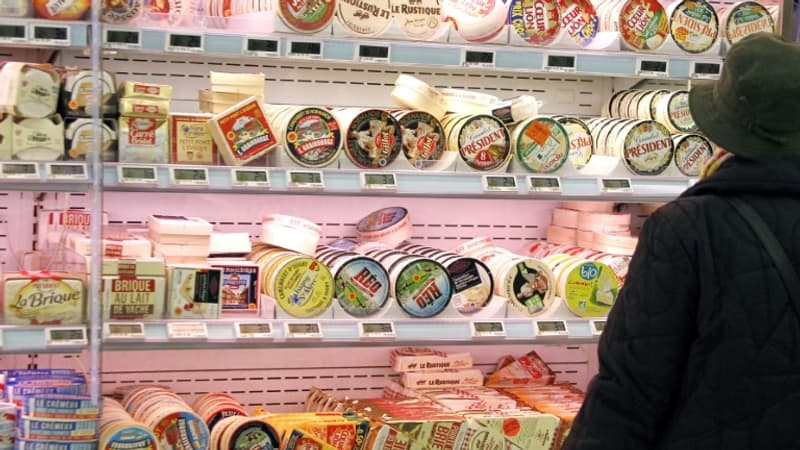From instant noodles to hummus to cutlets… Emulsifiers seem to be everywhere. A study carried out by Inserm researchers and published this Thursday in the british medical journal points out the harmful effects of these additives on our health.
“The results [de l’étude] suggest an association between dietary intake of emulsifying additives and increased risk of cardiovascular disease,” the researchers summarize in a news release.
Some recent research suggests that emulsifiers “may alter gut microbiota and increase the risk of inflammation, leading to potentially increased susceptibility to cardiovascular problems.” But in Europe, between 30 and 60% of our caloric intake comes from ultra-processed foods, loaded with various and varied additives.
Look for E460 and E466 on the label.
Manufacturers use emulsifiers to improve the appearance, taste, texture, and shelf life of products. In general, additives are often singled out for their unknown or negative effects, especially when combined and consumed in large quantities.
But what to look for on the label? In this specific case, the scientists looked at the additives. E460 to E468. Two in particular stand out: the E460 (microcrystalline cellulose, powdered cellulose) and E466 (carboxymethylcellulose).
These two elements are precisely the two most common according to the Open Food Facts database. The first appears 1,035 times, the second appears on the back of more than 2,000 products available in France. There are 3,000 references just for these two additives.
Mister Freeze raspberry and instant noodles
Since emulsifiers are agents that bind water and fat, they are especially appreciated by dairy producers. Many references of Parmesan, liquid cream, butter and protein yogurts contain E466.
Most surprisingly, these products are also found on the labels of sugar-free syrups, many ranges of omelets, instant noodles, or raspberry-flavoured Mister Freeze, specifically.
Lastly, many meat products are loaded with emulsifiers. Milanese Le Gaulois schnitzels, lots of grilled meats and even fried calamari.
However, this is not the time to order a lot in the closets. As the National Food Safety Agency (ANSES) reminds us, it is the dose that makes the poison:
“An additive is only authorized in human food if it does not pose any risk to the consumer in the doses used.”
The Inserm researchers believe, however, that “despite the evaluation of acceptable daily doses provided by the European Food Safety Authority”, harmful effects appear from 15 g per day. This is a difficult milestone to achieve with a single product, but not in a diet where processed foods are a significant part.
Source: BFM TV


